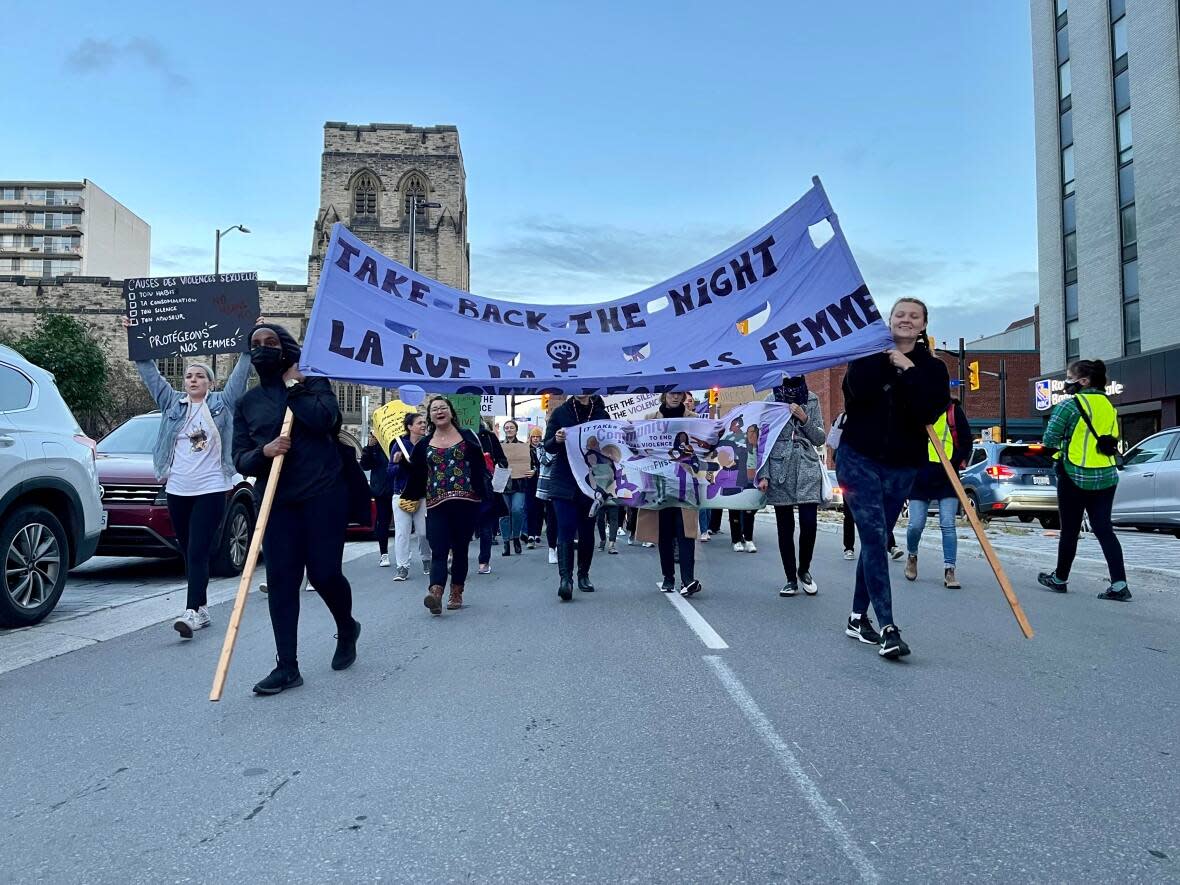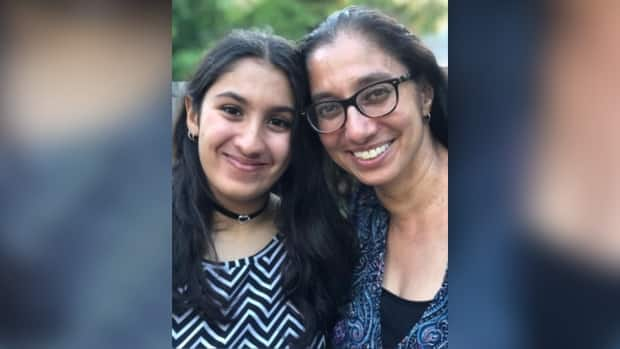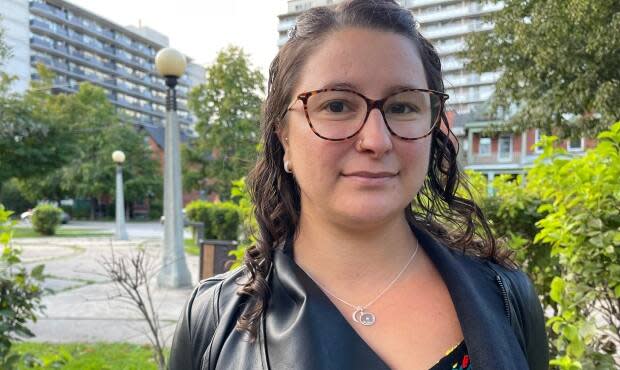'Keep fighting': Marching to end gender-based violence amid recent femicides, unprovoked assaults

From femicide to missing and murdered Indigenous women, from domestic violence to not being able to walk at night without looking over your shoulder.
Holding signs that read, "My body, my choice," "Stop abusing women" and "My little dress is not a yes," there were many reasons dozens of women and those who identify as women hit the pavement Thursday evening to march against sexual and gender-based violence in Ottawa, and in solidarity with survivors.
Most of the women had a story. And they weren't good ones.
Take Back the Night is an annual march and rally against gender-based violence to help women "reclaim" the night.
This most recent march comes after the widely publicized killings of three women in Ottawa earlier this year.
On Sept. 11, Savanna Pikuyak from Sanirajak, Nunavut, was killed shortly after she had moved to Ottawa for school.

On June 27, 15-year-old Jasmine Ready and her mother Anne-Marie Ready were killed by a young man.
Jasmine's elder sister Catherine Ready was also attacked, but survived. The suspect, who was shot dead by police, was the son of their next-door neighbour, who had been interested in Jasmine.
Thursday also marked the 7th anniversary of the murders of Carol Culleton, Anastasia Kuzyk and Nathalie Warmerdam in Renfrew County.
"There's still people being murdered for being women," said Carina Maggiore, the march's emcee.
"So the message is that even though we might think that we don't need feminism, that feminism is strong in Canada and that we've got it, clearly we don't."

And when it comes to just walking around at night, Maggiore said there is "always fear."
"Sometimes it's stressful," she said, "myself especially being like a small-stature woman. I've learned to keep my head up, make as much eye contact as possible.
"My message is that it's important to keep fighting."

Unprovoked assaults this month
In a coincidence, Ottawa police Thursday announced two unprovoked assaults on women earlier this month as they walked through the city.
The first alleged incident happened Sept. 13 at about 6 p.m. in south Ottawa. Two women were walking south on Uplands Drive when they were approached from behind by a man, and a 58-year-old woman was hit on the head, causing minor injuries.
The second happened Sept. 16 at about 8 p.m. in the area of Uplands Drive and Bennett Street. A 29-year-old woman was walking on the sidewalk when a man came toward her from a grassy area and struck her, causing minor injuries, police said.
Investigators believe one person may be responsible.
The suspect is described as a 20- to 30-year-old man standing five feet seven inches tall to five feet nine inches tall. He is described as having a skinny build and long, black curly hair past his shoulders in a ponytail.
He was wearing a dark baseball cap, white shirt, dark shorts and white running shoes, police said.
"We are asking the public to be beware of their surroundings and report anything suspicious to police through 911," a Sgt. Shane Henderson of the East Criminal Investigations Unit was quoted as saying in a news release.
Pandemic was 'so much harder' for survivors
According to the Sexual Assault Support Centre of Ottawa, one in three women and one in six men will experience sexual violence. In Canada, one in two women will experience sexual and or physical violence in their lifetime, and the pandemic had made things worse, according to the centre's Amina Doreh.
"It was much harder for survivors," Doreh said Thursday. "... In the last two years people have been isolated in their homes. There's been a lot of folks who haven't been able to access typical resources like they used to."

She added that people who experience sexual violence already feel isolated, and pandemic quarantines and public health measures made it even harder to access resources and visit support networks.
Doreh said Thursday's march was an opportunity for survivors to physically take back their space, connect with other survivors and feel that they're not alone.
The march began at Minto Park and went up to ByWard Market before ending at City Hall. It's the 42nd year of Take Back the Night Marches in Canada, and was the first in-person event since 2019 in Ottawa.



